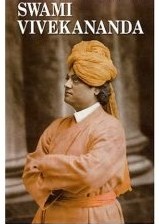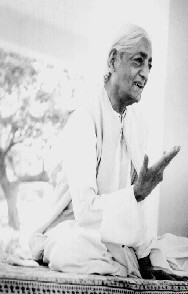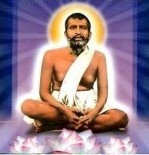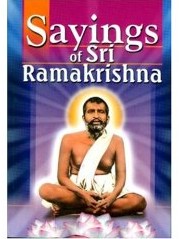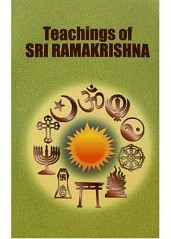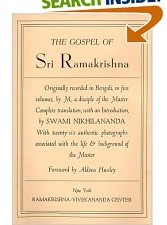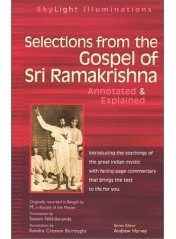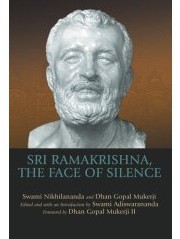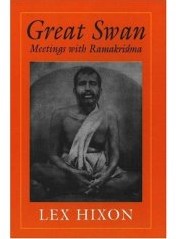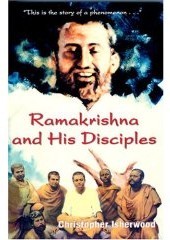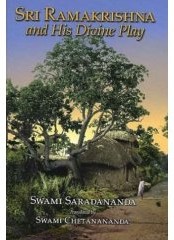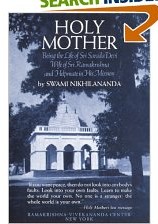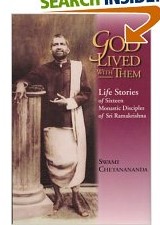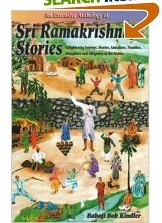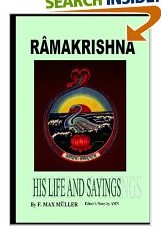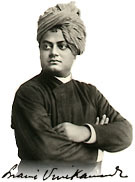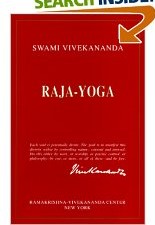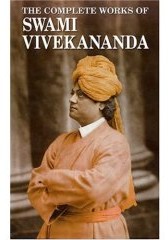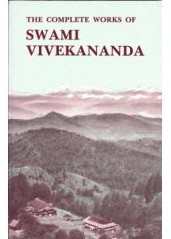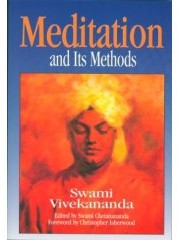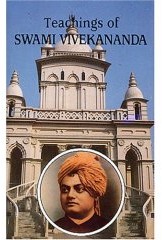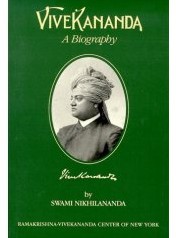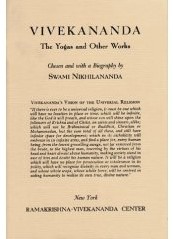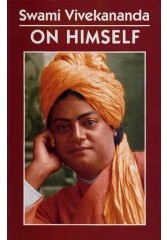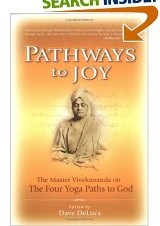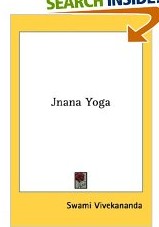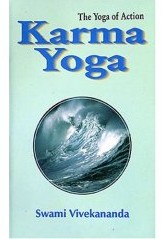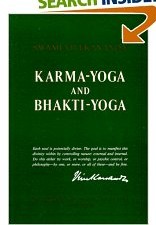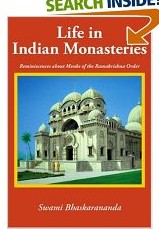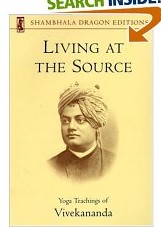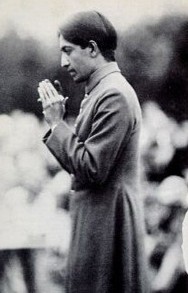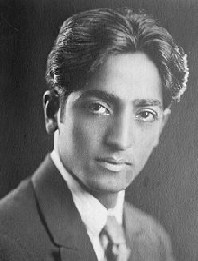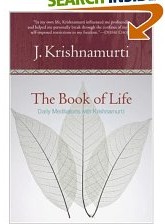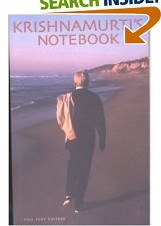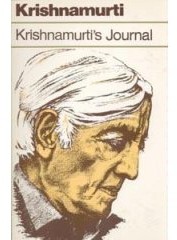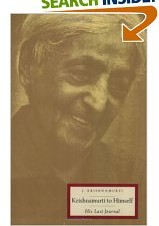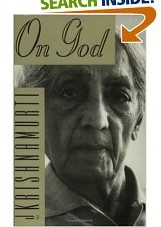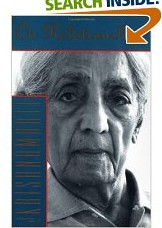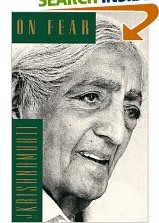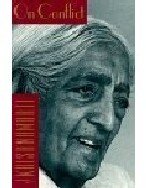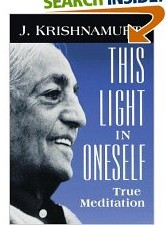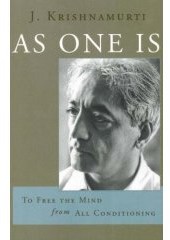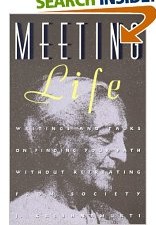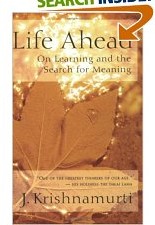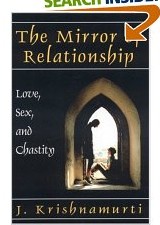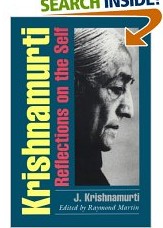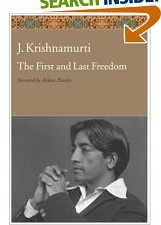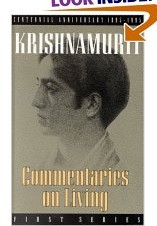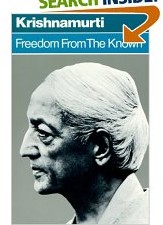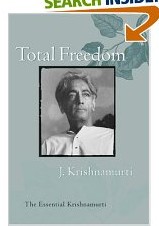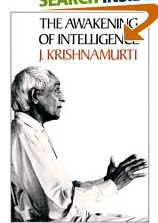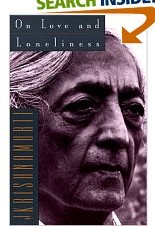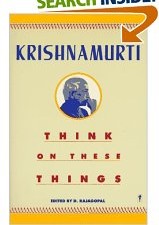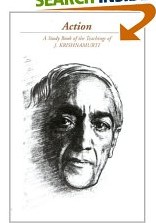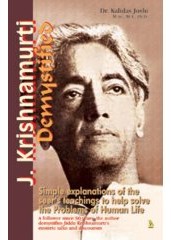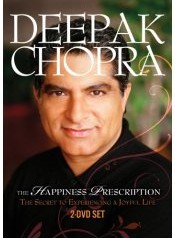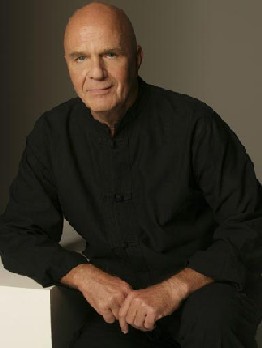|
|
|
|
|||||||||||||||||||||||||||||||||||||||||||||||||||||||||||||||||||||||||||||||||||||||||||||||||||||||||||||||||||||||||||||||||||||||||||||||||||||||||||||||||||||||||||||||||||||||||||||||||||||||||||||||||||||||||||||||||||||||||||||||||||||||||||||||||||||||||||||||||||||||||||||||||||||||||||||||||||||||||||||||||||||||||||||
|
Krishnamurty Spiritual Enlightenment Process As Described Above! |
Krishnamurty’s Philosophy:
Truth is a Pathless Land
Jiddu
Krishnamurti was a guru who never wanted to be one.
What he taught stemmed from his personal realization:
![]() You are on this Earth to live fully, happily with your whole being,
free of ambition, greed and fear. If you are greedy or ambitious,
you cannot live fully, because greed and ambition dissipate your
energy.
You are on this Earth to live fully, happily with your whole being,
free of ambition, greed and fear. If you are greedy or ambitious,
you cannot live fully, because greed and ambition dissipate your
energy.
 To live fully is to live without fear, without sorrow, without
asking a thing of the Gods, because you would be a light onto
yourself.
When you live fully¾a
light onto yourself¾you
will not follow anybody, you will have no nationality, or belong to
any religious or political group. You are the world, the neighbor, the friend, the so-called enemy. If
you would understand, you must first understand yourself, for in you
is the root of all understanding. In you is the beginning and the
end.
To live fully is to live without fear, without sorrow, without
asking a thing of the Gods, because you would be a light onto
yourself.
When you live fully¾a
light onto yourself¾you
will not follow anybody, you will have no nationality, or belong to
any religious or political group. You are the world, the neighbor, the friend, the so-called enemy. If
you would understand, you must first understand yourself, for in you
is the root of all understanding. In you is the beginning and the
end.
 The core of Krishnamurti's teaching is contained in the statement he
made in 1929:
The core of Krishnamurti's teaching is contained in the statement he
made in 1929:
TRUTH IS A PATHLESS LAND, and you cannot approach it by any path
whatsoever, by any religion, by any sect, and I adhere to that
statement absolutely and unconditionally. One has to find the Truth
through the mirror of relationship, through the understanding of the
contents of his own mind, through observation and not through
intellectual analysis or introspective dissection. Truth, being
limitless, unconditioned, unapproachable by any path whatsoever,
cannot be organized; nor should any organization be formed to lead or
to coerce people along any particular path. If you first understand
that, then you will see how impossible it is to organize a belief. A
belief is purely an individual matter, and you cannot and must not
organize it. If you do, it becomes dead, crystallized; it becomes a
creed, a sect, a religion, to be imposed on others.
 There is no path to truth, it must come to you. Truth can come to
you only when your mind and heart are simple, clear, and there is
love in your heart; not if your heart is filled with the things of
the mind. When there is love in your heart, you do not talk about
organizing for brotherhood; you do not talk about belief, you do not
talk about division or the powers that create division, you need not
seek reconciliation. Then you are a simply human being without a
label, without a country. This means that you must strip yourself of
all those things and allow truth to come into being; and it can come
only when the mind is empty, when the mind ceases to create. Then it
will come without your invitation. Then it will come as swiftly as
the wind and unbeknown. It comes obscurely, not when you are
watching, wanting. It is there as sudden as sunlight, as pure as the
night; but in order to receive it, the heart must be full and the mind
must be empty.
Now in this world you have the mind full of problems, hate and greed
and your heart is empty so you don't see the truth; Your mind must be
empty and your heart must be filled with pure love in order to see and feel the
blissful truth.
There is no path to truth, it must come to you. Truth can come to
you only when your mind and heart are simple, clear, and there is
love in your heart; not if your heart is filled with the things of
the mind. When there is love in your heart, you do not talk about
organizing for brotherhood; you do not talk about belief, you do not
talk about division or the powers that create division, you need not
seek reconciliation. Then you are a simply human being without a
label, without a country. This means that you must strip yourself of
all those things and allow truth to come into being; and it can come
only when the mind is empty, when the mind ceases to create. Then it
will come without your invitation. Then it will come as swiftly as
the wind and unbeknown. It comes obscurely, not when you are
watching, wanting. It is there as sudden as sunlight, as pure as the
night; but in order to receive it, the heart must be full and the mind
must be empty.
Now in this world you have the mind full of problems, hate and greed
and your heart is empty so you don't see the truth; Your mind must be
empty and your heart must be filled with pure love in order to see and feel the
blissful truth.
![]() Man
has built in himself images as a fence of security¾religious,
political, personal. These manifest as symbols, ideas and beliefs. The
burden of these images dominates man's thinking, his relationships and
his daily life. These images are the causes of our problems for they
divide man from man. His perception of life is shaped by the concepts
already established in his mind. The content of his
consciousness is his entire existence. This content is common
to all humanity. The individuality is the name, the form and
superficial culture he acquires from tradition and environment. The
uniqueness of man does not lie in the superficial but in complete
freedom from the content of his consciousness, which is common to all
mankind. So he is not an individual.
Man
has built in himself images as a fence of security¾religious,
political, personal. These manifest as symbols, ideas and beliefs. The
burden of these images dominates man's thinking, his relationships and
his daily life. These images are the causes of our problems for they
divide man from man. His perception of life is shaped by the concepts
already established in his mind. The content of his
consciousness is his entire existence. This content is common
to all humanity. The individuality is the name, the form and
superficial culture he acquires from tradition and environment. The
uniqueness of man does not lie in the superficial but in complete
freedom from the content of his consciousness, which is common to all
mankind. So he is not an individual.
![]() Krishnamurthy’s
book
“On
God”
contemplates our search for the sacred. "Sometimes you think life is
mechanical, and at other times when there is sorrow and confusion, you
revert to faith, looking to a supreme being for guidance and help."
Krishnamurti explores the futility (uselessness) of seeking knowledge
of the "unknowable" and shows that it is only when we have ceased
seeking with our intellects that we may be "radically free" to
experience reality, truth, and bliss. He presents "the religious mind"
as one that directly perceives the sacred rather than adhering top
religious dogma.
Krishnamurthy’s
book
“On
God”
contemplates our search for the sacred. "Sometimes you think life is
mechanical, and at other times when there is sorrow and confusion, you
revert to faith, looking to a supreme being for guidance and help."
Krishnamurti explores the futility (uselessness) of seeking knowledge
of the "unknowable" and shows that it is only when we have ceased
seeking with our intellects that we may be "radically free" to
experience reality, truth, and bliss. He presents "the religious mind"
as one that directly perceives the sacred rather than adhering top
religious dogma.
Jiddu Krishnamurti
Books
from Amazon.com
All
prices are subject to change; Whatever price shows up on Amazon's
site is final.
List
prices are already discounted up to 45%
1. The Book of Life:(Paperback)
Daily Meditations with
Krishnamurti
Author: Jiddu Krishnamurti
List Price:
$16.00
Price: $10.88
2.
Krishnamurti's Notebook (Paperback)
Author:
Jiddu Krishnamurti
List Price:
$17.95
Price: $12.21
3.
Krishnamurti's Journal (Paperback)
Author: Jiddu Krishnamurti and Mary Lutyens (Foreword)
Price: $0.17
4.
Krishnamurti to Himself:
His Last Journal (Paperback)
Author: Jiddu Krishnamurti
List Price:
$13.95
Price: $11.16
5. On God
(Paperback)
Author: Jiddu Krishnamurti
List Price:
$13.95
Price: $11.16
6. On
Relationship (Paperback)
Author: Jiddu Krishnamurti
List Price:
$13.95
Price: $11.16
7. On Fear
(Paperback)
Author: Jiddu Krishnamurti
List Price:
$12.95
Price: $10.36
8. On
Conflict (Paperback)
Author: Jiddu Krishnamurti
Price: $2.24
9. This
Light in Oneself: Ture Meditation
Author: Jiddu Krishnamurti
List Price:
$12.00
Price: $9.60
10. As One
Is: To Free the Mind from All Conditioning (Paperback)
Author: Jiddu Krishnamurti
List Price:
$14.95
Price: $11.21
11.
Meeting Life: Writings and Talks on
Finding Your Path Without Retreating from Society (Paperback)
Author: Jiddu Krishnamurti
List Price:
$14.95
Price: $11.21
12. Life Ahead: On Learning and the Search for
Meaning (Paperback)
Author: Jiddu Krishnamurti
List Price:
$13.95
Price: $13.95
13. The
Mirror of Relationship: Love, Sex, and Chastity (Paperback)
Author: Jiddu Krishnamurti
List Price:
$14.95
Price: $11.66
14.
Krishnamurti: Reflections on the Self
Author: Jiddu Krishnamurti Raymond Martin (Editor)
Price: $6.46
15. First
and Last Freedom, The (Paperback)
Author: Jiddu Krishnamurti
List Price:
$15.95
Price: $10.85
16.
Commentaries on Living I: Series
One (Paperback)
Author: Jiddu Krishnamurti
List Price:
$14.95
Price: $11.66
17. Freedom
from the Known (Paperback)
Author: Jiddu Krishnamurti
List Price:
$13.00
Price: $10.40
18.
The Only Revolution (Hardcover)
Author: Jiddu Krishnamurti
Price: $27.75
19.
Total Freedom: The Essential Krishnamurti (Paperback)
Author: Jiddu Krishnamurti
List Price:
$19.95
Price: $13.57
20.
Awakening of Intelligence, The (Paperback)
Author: Jiddu Krishnamurti
List Price:
$18.00
Price: $12.24
21.
On Love and Loneliness (Paperback)
Author: Jiddu Krishnamurti
List Price:
$13.95
Price: $11.16
22.
Think on These Things
Author: Jiddu Krishnamurti;
D. Rajagopal (Editor)
List Price:
$14.00
Price: $10.20
23. Action
(Paperback)
Author: Jiddu Krishnamurti
List Price:
$10.00
Price: $10.00
24. J.
Krishnamurthy Demystified (Paperback)
Author: Kalidas Joshi
Price: $28.65
|
Dr Deepak Chopra Biography |
|
|
Dr
Deepak
Chopra
was born on
October 22,
1946 in New Delhi, India. He is a
medical doctor, MD and writer. He has written extensively on
spirituality and diverse topics
in mind-body medicine. He states that he has been influenced by the
teachings of
Vedanta and the
Bhagavad Geeta from his native
India, and quantum physics. He also said that he has been profoundly
influenced by the teachings of J. Krishnamurty. His teachings have
had a profound influence on the “The New Thought Movement” which has
embraced him in the United States of America.
He has authored over forty-two books and one hundred audio, video, and
CD-ROM titles, which have been translated into thirty-five languages
and have sold over twenty million copies worldwide. He is a highly
sought-after workshop presenter and inspirational speaker, and has
achieved nearly guru status with many of his admirers. In 1995, he
established The Chopra Center for Well Being in California, and is
among the founding directors of the Alliance for the New Humanity.
Chopra is the recipient of the Einstein Award through Albert Einstein
College of Medicine in collaboration with the American Journal of
Psychotherapy. Time magazine hailed Dr. Chopra one of the top one
hundred heroes and icons of the twentieth century, and credits him as
“the poet-prophet of alternative medicine.”
Dr.
Deepak Chopra’s Quotes:
![]() Every person
is a God in embryo. Its only desire is to be born.
Every person
is a God in embryo. Its only desire is to be born.
![]() There are no
extra pieces in the universe. Everyone is here because he or she has
a place to fill, and every piece must fit itself into the big jigsaw
puzzle.
There are no
extra pieces in the universe. Everyone is here because he or she has
a place to fill, and every piece must fit itself into the big jigsaw
puzzle.
![]() Whatever relationships you have attracted in your life at this moment,
are precisely the ones you need in your life at this moment. There
is a hidden meaning behind all events, and this hidden meaning is
serving your own evolution.
Whatever relationships you have attracted in your life at this moment,
are precisely the ones you need in your life at this moment. There
is a hidden meaning behind all events, and this hidden meaning is
serving your own evolution.
![]() The secret of attraction is to love yourself. Attractive people judge
neither themselves nor others. They are open to gestures of love.
They think about love, and express their love in every action. They
know that love is not a mere sentiment, but the ultimate truth at
the heart of the universe.
The secret of attraction is to love yourself. Attractive people judge
neither themselves nor others. They are open to gestures of love.
They think about love, and express their love in every action. They
know that love is not a mere sentiment, but the ultimate truth at
the heart of the universe.
![]() The spiritual meaning of love is measured by what it can do. Love is
meant to heal. Love is meant to renew. Love is meant to bring us
closer to God.
The spiritual meaning of love is measured by what it can do. Love is
meant to heal. Love is meant to renew. Love is meant to bring us
closer to God.
![]() If you want to reach a state of bliss, then go beyond your ego and the
internal dialogue. Make a decision to relinquish the need to
control, the need to be approved, and the need to judge. Those are
the three things the ego is doing all the time. It's very important
to be aware of them every time they come up.
If you want to reach a state of bliss, then go beyond your ego and the
internal dialogue. Make a decision to relinquish the need to
control, the need to be approved, and the need to judge. Those are
the three things the ego is doing all the time. It's very important
to be aware of them every time they come up.
![]() If you and I are having a single thought of violence or hatred against
anyone in the world at this moment, we are contributing to the
wounding of the world.
If you and I are having a single thought of violence or hatred against
anyone in the world at this moment, we are contributing to the
wounding of the world.
![]() The less you open
your heart to others, the more your heart suffers.
The less you open
your heart to others, the more your heart suffers.
Dr Deepak Chopra
Books, CDs & DVDs
from Amazon.com
All
prices are subject to change; Whatever price shows up on Amazon's
site is final.
List
prices are already discounted up to 45%
|
Click on
any topic below and view Books on Amazon.com. |
|
|
1 |
|
|
2 |
|
|
3 |
|
|
4 |
|
|
|
|
|
Dr Wayne Dyer Biography |
|
|
Dr. Wayne W. Dyer was
born in
Michigan State, USA on May 10, 1940 and lives in Maui, Hawaii.
Although his childhood years were difficult, spending time in
orphanages and foster homes, his personal struggle to overcome these
obstacles and make his own dreams come true has inspired thousands of
fans who refer to him as the "father of motivation." When he's not
traveling the globe delivering his uplifting message, Wayne Dyer is
writing from his home in Maui.
Dr.
Wayne W. Dyer is an internationally renowned author and speaker in the
field of self-development. He has written numerous bestselling books
and has created a number of audios and videos. He has appeared on
thousands of television and radio programs, including The Today Show
and Oprah.
A psychotherapist, Wayne Dyer received his doctorate in counseling
psychology from Wayne State University and was an associate professor
at St. John's University in New York.
Dr. Dyer has written 30 books, recorded numerous audio programs, has
appeared on over 5,200 television and radio programs including Oprah,
The Today Show, and The Tonight Show, and has been interviewed in
dozens of popular magazines. In 1985 he was selected as one of six
prominent Americans, and his "A Letter to the Next Generation"
appeared in Time magazine.
Dr Wayne Dyer
Quotes:
![]() You're the creator of your thought, which means that in some
metaphysical way, you're the creator of your life.
You're the creator of your thought, which means that in some
metaphysical way, you're the creator of your life.
![]() What we think determines what happens to us, so if we want to change
our lives, we need to stretch our minds.
What we think determines what happens to us, so if we want to change
our lives, we need to stretch our minds.
![]() Doing what you love is the cornerstone of having abundance in your
life.
Doing what you love is the cornerstone of having abundance in your
life.
![]() When you dance, your purpose is not to get to a certain place on the
floor. It's to enjoy each step along the way.
When you dance, your purpose is not to get to a certain place on the
floor. It's to enjoy each step along the way.
![]() Procrastination is one of the most common and deadliest of diseases
and its toll on success and happiness is heavy.
Procrastination is one of the most common and deadliest of diseases
and its toll on success and happiness is heavy.
![]() It makes no sense
to worry about things you have no control over because there's
nothing you can do about them, and so why worry about things you
cannot control? The activity of worrying keeps you immobilized.
It makes no sense
to worry about things you have no control over because there's
nothing you can do about them, and so why worry about things you
cannot control? The activity of worrying keeps you immobilized.
Dr Wayne Dyer
Books, CDs & DVDs
from Amazon.com
All
prices are subject to change; Whatever price shows up on Amazon's
site is final.
List
prices are already discounted up to 45%
|
Click on
any topic below and view Books on Amazon.com. |
|
|
1 |
|
|
2 |
|
|
3 |
|
|
4 |
|
|
|
|
The World Religions
Books
from Amazon.com
All
prices are subject to change; Whatever price shows up on Amazon's
site is final.
List
prices are already discounted up to 45%
|
Click on
any topic below and view Books on Amazon.com. |
|||
|
1 |
4 |
||
|
2 |
5 |
||
|
3 |
6 |
||
|
7 |
8 |
||
|
|
|
|
|
|
If Liked and Enjoyed This Page, Please Make a Donation to Prime Publishing Co. |
|
Click Below To Donate: |
![]()
![]()
ACKNOWLEDGEMENTS
We thank Dr. RK for contributing his time and effort
in preparing the aforementioned
reviews.
Prime Publishing Co.
![]()
Power-of-imagination.com
was created for the convenience of internet visitors,
featuring online shopping made
easy.
Power-of-imagination.com
does not stock any inventory nor does it ship products
directly to customers.
Power-of-imagination.com is a referral site as it drives online visitors to Amazon,
ebay,
ClickBank & Advertisers.
Amazon, ebay, ClickBank & Advertisers are responsible to track
orders, ship products and deal with customer issues.
Canadian Residents:
Always make sure, before you place an order, that the item is shipped to Canada.
COPYRIGHT
Copyright ©
by Prime Publishing Co.
![]()
